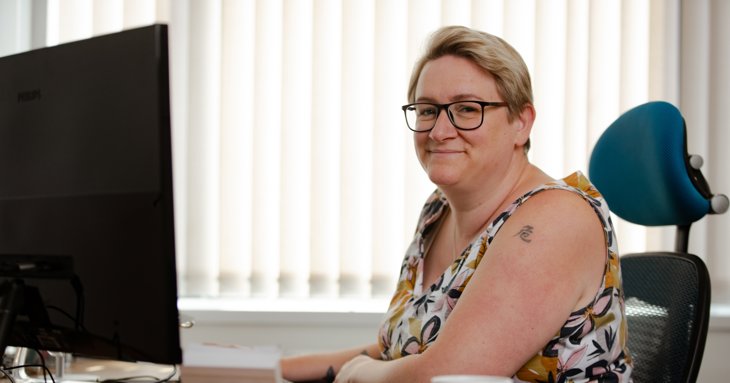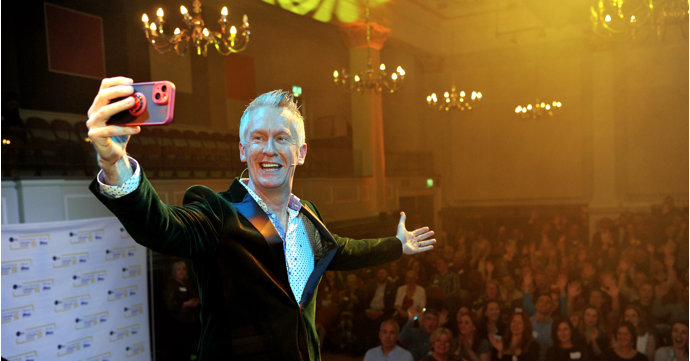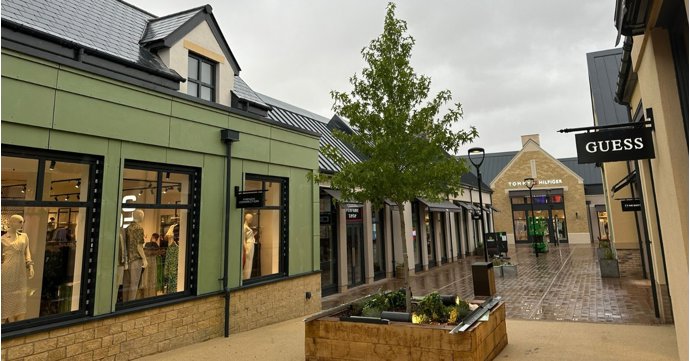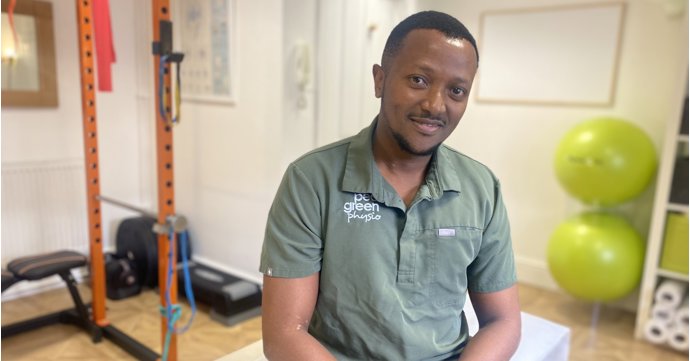As we continue to champion Gloucestershire's cyber community throughout European Cyber Security Month this October 2023, we talked with Sarah Smith of Cheltenham-based ReformIT, one of the county's leading stars in the tech industry, to find out what it's like being an inspiring woman in the cyber sector, navigating the industry with a neurodiversity and what makes her tick.
Can you tell us a bit about your background? Where did you grow up and what was your first job?
I grew up and went to school in Redditch. I have really fond memories of my childhood — with an older sister and younger brother, life was never quiet. Both of my parents worked hard. When I look back it is easy to see where I got my work ethic from.
My first job was at 14-years-old — I worked in a fish and chip shop in the town centre on a Saturday, cleaning out ovens. It was not the most pleasant job in the world, but I worked hard and before long I progressed to taking on other roles. I remember one winter, all the buses were cancelled and the roads were deep with snow; I walked three miles to the shop, and when I got there, it was just the owner and myself that had gone in. I ended up working there for a few years and was running the evening shifts after school a few days a week.
You've been at ReformIT since May 2022. What is your role now and how has it evolved since you first joined?
When I first joined the business, I took over all of the marketing along with social media and our website. As time went on and I got involved in more of the operational side of the business, it became apparent that I have a skillset that lends itself to an operations role.
I worked hard to progress the work that I was doing and, within six months, was asked to take on the role of director of operations and marketing. I work closely with the service delivery department to monitor and maintain our excellent service levels, work with the technical team to help with smooth integration of systems and oversee all operations for the company.
I suppose, at my core I am a problem solver, and this comes in handy for many things in cyber. If something isn’t working as expected, I am able to pick it apart, find out why and make changes needed. I also perform all of the marketing roles at the moment. I am responsible for everything from how our communications with clients look to all of the information on our website and everything in between.
What are your experiences as a woman working in the cyber industry?
The first event I went to was probably the first time I really noticed how few women there are in our industry. And I was glad that I was coming in with enough knowledge to confidently talk about our services with others there.
I think sometimes I am seen as a novelty, and it can take time for some to realise that I am not just there to bring them a coffee! You certainly have to be more considered as a woman in a business that is mostly made up of men. When a man stands by a decision or an idea, it's him being confident; when a woman does it, she is being stubborn or difficult.
I have had to learn how to handle myself and I continue to try to learn different ways to communicate with people in the workplace. I have the added pressure that I am a director in the company, so I am often making decisions that affect more than just myself. But I am fortunate that the team I work with has been so supportive.
Are there any changes you would like to see happen for women in the industry?
It would be nice if one day the level of women in cyber was more balanced so that we didn’t need to highlight it.
We've previously chatted to your husband Neil Smith about his struggles with the work-life balance. How do you manage to balance this yourself?
This one is hard, because I am married to the managing director of ReformIT. We do always make sure we leave work at work when we can and take weekends for family time with the children. There is a history of mental health issues in my family and we have also both experienced loss of friends due to it. We are very aware of the need to switch off from work and talk to each other; even the children make sure this happens, too. Learning to be open with your emotions and talk about them is something we are all passionate about.
You are very open about your ADHD diagnosis. When did you realise that you had a neurodiversity?
I found out that I have ADHD only a year ago; actually, not long before I came to work for ReformIT. Knowing has been a game changer for me and my family.
The more I research and learn about myself, the more changes and adaptations I can make. I know my mom was a little upset at first because she felt she should have noticed when I was a child, but it's easy to look back now and see the signs; at the time it wasn’t really understood.
I was often described as 'inattentive' or a 'scatter brain' at school. But I wouldn’t change a thing if I had the chance to go back though. I am so happy with where I am and who I am today — I wouldn’t want to change that.
What are your super powers and your challenges with your neurodiversity?
My hyperactivity is in my brain — my mind goes a million miles an hour and I am never not thinking about something. So, in a conversation about a potential issue, for example, I have already worked halfway to the solution before the other person has finished explaining the issue. Of course, I have had to learn to hold the thoughts in my head and let them finish first, though!
I see patterns and how things interact with each other without much effort. I never realised this was my thing until I worked here. On the other end of the scale, I am very easily distracted by a more interesting task or a conversation someone else is having that I can't physically not hear. I have tools to help me with this and, as we have a fairly neuro-diverse team, we are all very open about our coping mechanisms.
So, for example, my colleagues know that there will be times when I need to shut my office door, pop my headphones in and disappear into a hyperfocus moment. They also know to leave me alone when this happens because once interrupted, I've lost the focus and it's often very hard to get it back. They no longer even take offence if I have to ask them to stop clicking a pen over and over before my brain explodes!
Being open about it is the most important thing I can do, not only as a leader in my business but as a mother, too. Our 11-year-old son is currently waiting to be assessed for ADHD himself.
What have been your experiences of working in the cyber world with a neurodiversity?
I think the world of cyber lends itself to those of us who are neurodiverse because of its complexities. One quarter of the ReformIT team are neurodiverse in some way. Maybe that is why I fit in so well.
And finally, what are you excited about for the future at ReformIT?
My own personal plans for my future here are to continue to learn as much as I can and take my Microsoft exams so that I can be more effective in my role.
I would love to do some public speaking too, perhaps in the charity sector to help bring awareness and cyber security to those companies that might otherwise not be protecting themselves or know they can access free products and services.




.jpg?width=690&height=361&rmode=pad&bgcolor=ffffff&quality=85)















